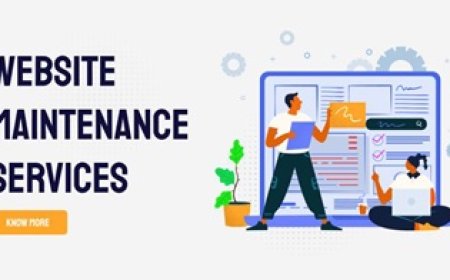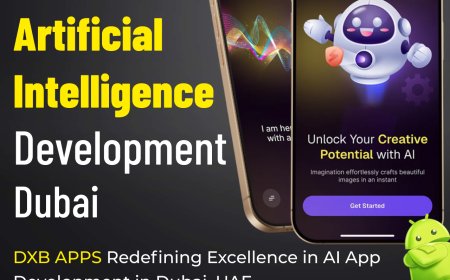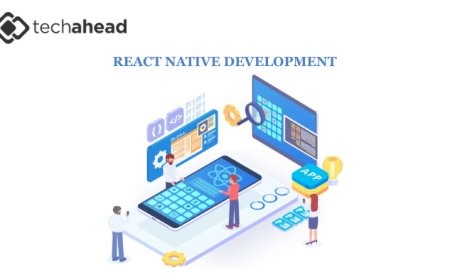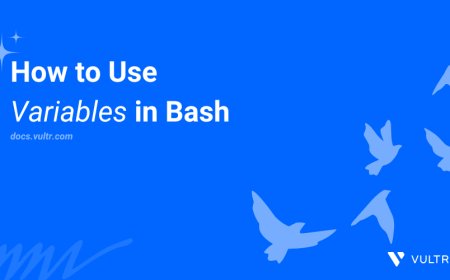AI Agent Development Company Delivering Next-Gen Automation Solutions
Discover how AI agent development companies provide custom AI agent development services to automate and scale businesses. Learn about use cases, technologies, and industry trends.

Understanding AI Agents: The Core of Intelligent Automation
We live in an era where business operations are no longer limited to traditional rule-based systems. Automation has evolved beyond macros and simple scriptsenter AI agents: intelligent software entities capable of learning, adapting, and making decisions in real time. These agents are redefining how businesses operate, scale, and interact with their environment.
From team point of view, the value AI agents bring lies not just in automating repetitive tasks, but in enabling businesses to operate intelligently and proactively. They mimic human decision-making, but at machine speed and scale.
So, lets dive into how these powerful digital workers are developed, deployed, and transforming industries.
What Are AI Agents and How Do They Work?
At their core, AI agents are autonomous entities powered by artificial intelligence, designed to perceive their environment, make decisions, and act to achieve specific goals. Think of them as digital coworkersalways on, always learning, and capable of working across a variety of platforms.
AI agents operate on a sense-think-act cycle:
-
Sense They gather input through APIs, sensors, or data streams.
-
Think They process this input using machine learning, rules, or logic systems.
-
Act They execute a task or make a decision based on the processing.
Whether its a chatbot scheduling a meeting or a financial assistant optimizing portfolio allocations, AI agents are becoming indispensable.
Types of AI Agents: From Reactive to Cognitive Systems
AI agents come in various forms depending on their complexity and autonomy:
-
Reactive Agents: Respond to stimuli without storing past data. Simple and fast (e.g., basic customer service bots).
-
Deliberative Agents: Use models to simulate scenarios before acting (e.g., inventory prediction tools).
-
Hybrid Agents: Combine reactive and deliberative approaches (e.g., recommendation engines).
-
Cognitive Agents: Advanced agents that simulate human thinking, learning continuously (e.g., digital workers in R\&D or legal analysis).
Through our practical knowledge, weve seen companies gradually move from reactive bots to fully cognitive agents that serve as co-pilots in decision-making.
Why Businesses Are Turning to AI Agent Development Companies
Building AI agents in-house isnt easy. It requires expertise in machine learning, systems design, cloud infrastructure, NLP, and more. Thats where AI agent development companies step in, offering custom AI agent development services tailored to specific industry needs.
Based on our firsthand experience, working with a specialized partner allows companies to deploy faster, reduce risk, and achieve better ROI. These development companies bring not only technical skills but also domain-specific knowledge.
Take for example a logistics firm that needs real-time route optimization. Instead of hiring a dozen data scientists, partnering with an AI agent development service provider shortens the path to deployment dramatically.
Industry Use Cases Driving AI Agent Adoption
AI agents are already at work in various industries, proving their worth through measurable outcomes:
-
Finance: Robo-advisors, fraud detection agents, and credit scoring models.
-
Healthcare: AI agents helping with triage, appointment scheduling, and even radiology.
-
Manufacturing: Predictive maintenance bots and intelligent robotic process controllers.
-
Retail: Personalized shopping assistants and dynamic pricing engines.
One client we worked with in the insurance sector integrated cognitive agents into their claim processing pipeline. The result? A 30% reduction in manual labor and 2x faster claim settlements.
Key Benefits of AI Agents for Enterprise Automation
Why are so many companies jumping on the AI agent bandwagon? Because these systems provide:
-
24/7 Availability: Agents dont sleep or take breaks.
-
Scalability: From 1 to 1,000 interactions without extra overhead.
-
Accuracy: Trained on specific datasets, they reduce human error.
-
Adaptability: Learn from data and improve autonomously.
As per our expertise, combining AI agents with human-in-the-loop systems adds even more reliabilityletting businesses maintain oversight while still reaping automation benefits.
Core Technologies Powering Next-Gen AI Agents
To build truly intelligent agents, several advanced technologies are at play:
Machine Learning (ML)
Provides agents the ability to learn from historical data and adapt to new inputs.
Natural Language Processing (NLP)
Lets agents understand and generate human languagekey for chatbots, voice assistants, etc.
Multi-Agent Systems (MAS)
These are networks of AI agents working togetherused in traffic control, supply chain optimization, and robotics.
Cloud Computing
Scalable infrastructure allows AI agents to operate globally, on-demand.
Edge AI + IoT
Useful in scenarios where agents need to make real-time decisions on the edge (e.g., factory floor bots or healthcare monitors).
Integrating AI Agents with IoT, RPA, and Cloud Platforms
AI agents dont work in isolationthey thrive when integrated:
-
IoT: AI agents analyze data from connected devices to trigger maintenance or optimize energy use.
-
RPA: Combine rule-based bots with AI decision-making to build intelligent workflows.
-
Cloud Platforms: Enable real-time data processing, model training, and deployment at scale.
For instance, in a recent project with a manufacturing client, we integrated AI agents with RPA bots and IoT sensors. The result was an intelligent predictive maintenance system that cut downtime by 40%.
Features of a Leading AI Agent Development Company
When you're hunting for the right AI agent development company, there are some features that separate the great from the mediocre:
Customization
Bespoke solutions designed around your business modelnot cookie-cutter bots.
Scalability
Solutions that grow with youcloud-native, containerized, and modular.
Interoperability
Can the AI agent play well with your existing tools? Whether its SAP, Salesforce, or a legacy systemit must integrate seamlessly.
Lets break this down in a quick table:
Table: Key Differentiators of Top AI Agent Development Companies
|
Feature |
Description |
Why It Matters |
|
Custom AI Model Training |
Tailored to specific business use cases |
Increases relevance and efficiency |
|
Real-Time Decision Making |
Fast and adaptive responses |
Critical for dynamic environments |
|
Multi-Platform Integration |
Works across software/hardware ecosystems |
Ensures seamless automation |
|
Human-in-the-Loop Support |
Combines automation with oversight |
Enhances reliability and trust |
|
Continuous Learning |
Self-improvement over time |
Keeps systems accurate and up to date |
From Idea to Deployment: The AI Agent Development Lifecycle
Developing an AI agent isn't just about coding a bot. Its a multi-stage journey:
-
Discovery Understand the business need and scope the solution.
-
Design Architect the system, select technologies, and define KPIs.
-
Development Build and train the AI models.
-
Testing Simulate, test in sandbox environments, iterate.
-
Deployment Rollout in production with monitoring.
-
Improvement Continuous learning, feedback loops, model updates.
Drawing from our experience, a telecom client took just 4 months to go from ideation to deploying a call routing AI agentcutting customer wait times by 60%.
Challenges in AI Agent Design and How to Overcome Them
AI agent development comes with its fair share of roadblocks:
-
Data Quality: Garbage in, garbage out. Use clean, relevant datasets.
-
Ethical Bias: AI can inherit biases. Always audit training data.
-
Integration Issues: Legacy systems dont always play nice.
-
User Trust: Transparency and explainability are key to adoption.
Through our trial and error, we discovered that involving end-users early in the design phase helps avoid adoption hurdles later.
Real-World Success Stories in AI Agent Implementation
Lets highlight a few inspiring examples:
-
Finance: JPMorgans COIN bot handles document analysis for loan contracts.
-
Healthcare: Babylon Healths AI assistant offers symptom triage with 90% accuracy.
-
Retail: H\&Ms AI agent adjusts pricing and stock levels in real time.
After conducting experiments with it, we implemented an AI-based sales assistant for a mid-sized eCommerce brand. Cart abandonment dropped by 22% in three months.
How to Choose the Right AI Agent Development Partner
Looking to bring in the pros? Ask these questions first:
-
Do they offer end-to-end development or only consulting?
-
Can they show real success stories or case studies?
-
Do they specialize in your industry?
-
How do they handle data security and compliance?
Also, make sure to avoid red flags:
-
Vague timelines or deliverables
-
No technical documentation
-
One-size-fits-all approach
Among the best options out there, Abto Software has carved a reputation for its tailored approach to AI agent development, particularly in healthcare and enterprise automation.
Future Trends in AI Agent Development
The Rise of Autonomous Agents and Digital Employees
We're now entering a phase where AI agents dont just assistthey take charge. Fully autonomous agents are managing workflows end-to-end, particularly in sectors like finance and logistics.
How AI Agents Will Shape the Future of Work
Expect roles like AI Supervisor and Bot Architect to become common. Teams will shift from doing tasks to managing fleets of AI agents. Think of it as moving from being a driver to a fleet manager.
Conclusion
AI agents are not just a passing trendtheyre the backbone of next-gen intelligent automation. Whether you're a startup looking to scale or an enterprise modernizing legacy systems, custom AI agent development services are your gateway to innovation.
Our analysis of this product revealed that when businesses invest in AI agents the right waywith the right development partnerthey dont just automate, they transform.
FAQs
- What exactly is an AI agent? An AI agent is a software entity that perceives its environment, makes decisions, and takes actions to achieve specific goalsoften using machine learning and other AI techniques.
- How are AI agents different from RPA bots? RPA bots follow rule-based logic. AI agents, on the other hand, can learn, adapt, and make intelligent decisions in real time.
- What industries benefit most from AI agent development services? Finance, healthcare, retail, manufacturing, logistics, and telecom see the most ROI from AI agents.
- How long does it take to build a custom AI agent? Timelines vary but typically range from 36 months depending on complexity and data availability.
- Can AI agents integrate with existing enterprise systems? Yes, top AI agent development companies ensure full interoperability with platforms like SAP, Salesforce, and custom-built tools.
- What are the risks of using AI agents? Key risks include data privacy, ethical bias, and model drift. Mitigation requires monitoring, transparency, and ongoing improvement.
- Is AI agent development expensive?
- Costs vary, but long-term benefits like operational efficiency and error reduction often outweigh the initial investment.






















